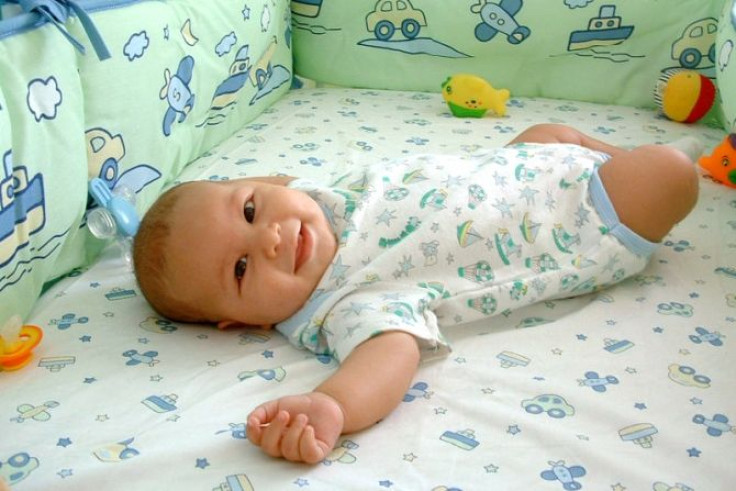Letting Your Baby Cry Themselves to Sleep Is Fine, Researchers Say

Teaching a child how to fall asleep at a fixed time is a mighty tough task. Now, research has shown that teaching children to fall asleep independently makes mothers feel less stressed and, yes, these techniques are completely safe and effective in the long-run.
Researchers from Australia have found that two techniques, controlled comforting and camping out, are effective in reducing sleeping problems in children and reducing depression in their mothers.
Both techniques aim at teaching a child to sleep independently requiring less help from parents at older age .Camping out is a technique where a parent stays (on a chair next to the baby's cot) with the child until they fall asleep. With time, the parent shifts his/ her chair out of the room. The process takes about 2 or 3 weeks to work.
Controlled comforting is when the parent responds to the child's cries at increasing intervals of time. This technique is not the same as crying-it-out, where the child is left to cry till he/she sleeps.
The study involved some 225 infants who had sleep problems, as reported by the parents. These infants were then followed until they were six-years-old. Half of the study participants were offered a sleep program that involved either of the two sleeping techniques. camping out or controlled comforting.
Researchers found that the children and parents that received a sleeping schedule had better outcomes than the control group (the other half that didn't receive any guidance).
Participants following either of the programs slept better and had fewer behavioral problems. Both mother and child had fewer sleepless nights and mothers were found to be less depressed during the course of the study.
"Using sleep techniques like controlled comforting with babies from six months helps reduce both infant sleep problems and the maternal depression associated with the baby's sleep problems, and these effects are still apparent up to 2 years of age," Dr. Anna Price, lead researcher from Murdoch Childrens Research Institute in Melbourne said.
"Parents can feel reassured that using sleep interventions like controlled comforting and camping out are effective and safe. Given that the techniques work for most families and are cost-effective, parents and health professionals can feel confident using these sleep techniques to manage infant sleep," Price added.
If you are dealing with a preschooler who has problems falling asleep, then you may find it helpful to let them watch age-appropriate, educational content rather than violence on television because media violence has been linked to disturbed sleep in children.
The present study was published in the journal Pediatrics.



























